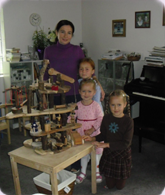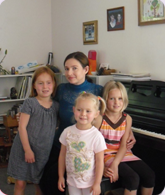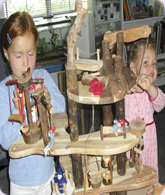How is classical music different?




"The secret of all man's progress is the love of his environment" by Dr. Mario Montessori.
Classical music, as oppose to rock and country, has a more complex musical structure. Researchers think the complexity of classical music is what primes the brain to solve spatial problems more quickly. If language and music are natural needs of the human being, why is the study of music such a tiresome burden?". This question is asked even today. The answer is simple. There is nothing in the environment that enables the child to grow into music as he grows into language. Without a suitable environment, a child is unable to carry out his constructive activities. We have seen that Greek is difficult to learn when studied at school, but the three-year olds of Greece speak it fluently. Usually, we think we have to teach music; instead, we should concentrate on creating a musical atmosphere. According to Dr. Montessori, "the secret of all man's progress is the love of his environment". Just as beautiful speech comes from years of listening, music appreciation comes from years of listening to music. Musical Environments® provides such musical atmosphere.
Classical Music and Brain Development by Jody Capehart
"Music is a more potent instrument than any other form of education. Children should be taught music before anything." by Plato
What parent does not want
intelligent children? We all do.
What can we do to facilitate that
goal? Plato said: "Music is a more potent instrument than any other form of education. Children should be taught music before anything".
Research says the richer the learning environment, the richer the brain network. It requires a concerted effort on the part of the parents to provide a learning environment for their children that contains a wealth of quality literature and music.
Dr. Gordon Shaw, a physicist at the University of California at Irvine, and Dr. Frances Rauscer, a psychologist at the University of Wisconsin at Oshkosh, did research on what facilitates neural brain development. He called his findings The Mozart Effect. David Merrell, a high school student, did an experiment, and his findings support this research. He took 72 mice and ran them through a maze. It took the mice an average of ten minutes to get through the maze. Then for four weeks, he split the mice into three groups, which continued going through the maze:
- Group 1 performed without music
- Group 2 performed to Mozart
- Group 3 performed to hard rock music
Classical music is a significant part of the educational training of our children at home and at school. When do you begin? When your child is in the womb.
At the end of the four weeks, he recorded the following results:
- Group 1 could get through the maze in five minutes simply because of sheer practice.
- Group 2 could get through the maze in 1.5 minutes.
- Group 3 could barely stumble through the maze in 30 minutes!
